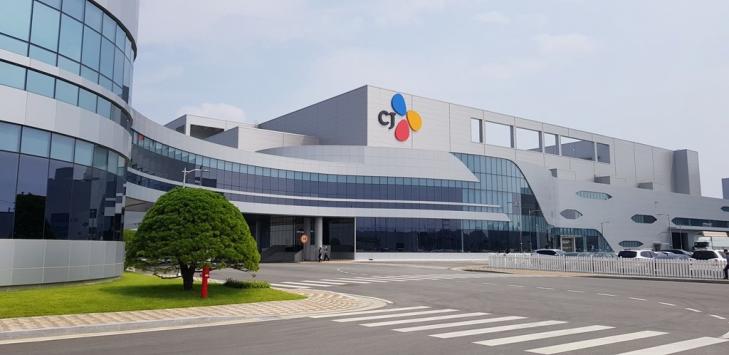
CJ BIO, the global leader in fermentation capacity with world-scale businesses in both animal and human nutrition, is using this new facility to enter the biomaterials sector with the goal of creating opportunities to reduce the impact of manufactured plastics on global waste streams and the environment. The rated capacity of the new facility is 5,000 tonnes and will focus exclusively on manufacturing ‘amorphous’ PHAs (a-PHAs).
Amorphous PHA is a softer, more rubbery (low glass transition temperature (Tg)) version of PHA that offers fundamentally different performance opportunities than crystalline or semi-crystalline forms of PHA. This material will see immediate use as a modifier to other polymers and biopolymers to improve functional characteristics and biodegradability, enabling ‘cradle-to-grave’ solutions for the broad range of markets that generate plastic waste. The technology also has the potential to develop building blocks for other performance materials made from non-fossil fuel sources. CJ BIO shipped its first material from the facility in April of this year.
According to Seung Jin Lee, Head of the Biomaterials business, one of the objectives of the new business is to build a world-class biomaterials platform based on PHA technology, capable of addressing what amounts to a global crisis in plastics pollution.
“Plastics are an essential material, improving people’s lives everywhere – but the impact of so much of this material on our environment has become unsustainable moving forward. Increased bio-content and improved biodegradability have been improvements, but the issue of full biodegradability – particularly in marine and home environments – has yet to be addressed. We believe that PHAs – with the right properties and manufactured at scale – will allow us to address this issue globally”, Lee said.
Polyesters produced in nature
Polyhydroxyalkanoates are linear polyesters produced in nature through bacterial fermentation of sugars or lipids. They occur naturally in living cells from a 5–10% rate, which gives PHAs their excellent biodegradability. CJ BIO can increase PHA content up to 85% through bacterial strain and proprietary fermentation technology. The company employs advanced downstream technology for the extraction of PHA components and for the manufacture of specific products. CJ BIO’s broad technology platform, which is covered by an extensive patent portfolio, can target specific monomer ratios and can produce crystalline, semi-crystalline, and amorphous polymer structures.
The new Pasuruan facility will focus solely on amorphous PHAs. In one of its most important applications, amorphous PHA complements the bio-content and biodegradability profile of polymers while at the same time improving functional and processing properties. It represents a solid opportunity to improve the performance of the biopolymer polylactic acid (PLA) by delivering significant improvements to this material’s mechanical properties, including increased toughness, better strength, and ductility. Also, amorphous PHA maintains the bio-content of PLA and can potentially improve its biodegradability profile.
The Market Leader in Amorphous PHAs
According to Max Senechal, Chief Commercial Officer of the Biomaterials business, the startup of this new PHA manufacturing facility in Pasuruan is the culmination of decades of work that started at the company Metabolix in the early 2000s and which CJ Bio has been improving since it acquired Metabolix biopolymer assets in 2016. “CJ BIO has been working toward biobased chemicals and biopolymers as part of a long-term vision to expand into technologies that can help create a more sustainable future. This new facility represents a major step for CJ BIO along a journey that will see significantly more investment in this technology in the near future. Today, we are the only company with the potential to produce amorphous PHA at scale, with the unique properties required to support the rapid growth of the bioplastics industry. Market response to our technology offering and our new PHA products has been significant. We’re excited and proud of the hundreds of people who have helped make this happen”, Senechal said.
Source
Bioplastics MAGAZINE, 2022-05-02.
Supplier
CJ BIO (CJ CheilJedang, S. Korea)
CJ CheilJedang
Share
Renewable Carbon News – Daily Newsletter
Subscribe to our daily email newsletter – the world's leading newsletter on renewable materials and chemicals










